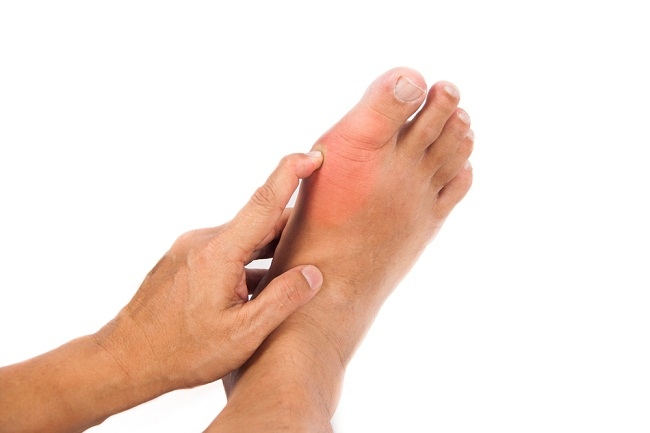Nilotinib is a drug used to treat chronic myelogenous leukemia (CML). Chronic myelogenous leukemia is a type of blood cancer in which the bone marrow produces too many granulocyte-type white blood cells.
Nilotinib works by inhibiting protein kinases, thereby stopping the growth of cancer cells. This drug can be used by adults and children over 1 year of age. Nilotinib is usually used in patients newly diagnosed with CML, or when the condition has not been successfully treated with other medications.

Nilotinib trademark: Tasigna
What is Nilotinib
| group | Prescription drugs |
| Category | Protein kinase inhibitor |
| Benefit | Treat chronic myelogenous leukemia (CML) |
| Consumed by | Adults and children |
| Nilotinib for pregnant and lactating women | Category D: There is positive evidence of risks to the human fetus, but the benefits may outweigh the risks, for example in dealing with life-threatening situations. It is not known whether nilotinib is absorbed into breast milk or not. If you are breastfeeding, do not use this medicine without telling your doctor. |
| Drug form | Capsule |
Warnings Before Taking Nilotinib
Nilotinib should only be taken according to a doctor's prescription. Before taking this drug, you need to pay attention to the following:
- Tell your doctor about any allergies you have. Nilotinib should not be used by patients who are allergic to this drug.
- Tell your doctor if you have hypokalemia, low magnesium levels (hypomagnesemia), or long QT syndrome. Nilotinib should not be used in these conditions.
- Tell your doctor if you have or are currently suffering from liver disease, electrolyte disturbance, heart rhythm disorders, pancreatitis, heart disease, high blood pressure, high cholesterol, bleeding, diabetes, stroke, vascular disease, or a history of abdominal surgery, such as gastrectomy.
- Avoid consuminggrapefruitwhile taking nilotinib, because grapefruit may interact with nilotinib and increase the risk of side effects.
- Do not immunize or vaccinate without a doctor's approval, and avoid contact with people who have recently received live vaccines.
- Tell your doctor if you are pregnant, breastfeeding, or planning a pregnancy. Use birth control to prevent pregnancy, while on treatment with nilotinib.
- Tell your doctor if you are taking certain medications, supplements, or herbal products.
- Tell your doctor that you are taking nilotinib before having any surgery, including dental surgery.
- See your doctor right away if you have an allergic drug reaction, serious side effect, or overdose after using nilotinib.
Dosage and Rules for Use of Nilotinib
The dose of nilotinib that your doctor prescribes can be different for each patient. The following is the dose of nilotinib based on the patient's condition and age:
Condition:Chronic phase chronic myelogenous leukemia Philadelphia chromosome positive
- Mature: The dose for newly diagnosed patients is 300 mg, 2 times a day.
- Children: Dosage for newly diagnosed pediatric patients who are resistant to other treatments will be given based on body surface area calculations. The dosage is 230 mg/m2, 2 times a day. The maximum dose is 400 mg as a single dose.
Condition: Accelerated and chronic phases chronic myelogenous leukemia Philadelphia chromosome positive
- Mature: The dose for patients who are resistant to other treatments is 400 mg, 2 times a day.
Dose reduction or discontinuation of treatment may be necessary, depending on the patient's response to treatment.
How to Take Nilotinib Correctly
Follow your doctor's advice and read the information listed on the drug packaging label before taking nilotinib.
Nilotinib is taken on an empty stomach, at least 2 hours before or 1 hour after a meal. Do not reduce or increase the dose without consulting your doctor first.
Swallow the capsule whole with a glass of water. Swallow whole, do not chew or crush the capsules.
If you are taking antacids, take them 2 hours before or after taking nilotinib. If you are taking medication with an H2 antagonist, such as ranitidine, take the drug 10 hours before or 2 hours after taking nilotinib.
Keep taking this medicine even if you feel well. Do not stop taking this medication without consulting your doctor.
If you forget to take nilotinib, it is advisable to do it immediately if the break with the next consumption schedule is not too close. If it is close, ignore it and do not double the dose.
During treatment with nilotinib, you will be asked to have regular blood tests or an EKG. Always follow the examination schedule and advice given by the doctor.
Store nilotinib in a dry place away from direct sunlight. Keep out of reach of children.
Interactions of Nilotinib with Other Drugs
Nilotinib can cause drug interactions when used with other medicines. The following are some of the effects of drug interactions that may occur:
- Decreased effectiveness of nilotinib when used with proton pump inhibitors
- Increased serum nilotinib concentration when used with ketoconazole, itraconazole, voriconazole, ritonavir, or telithromycin
- Increased risk of QT prolongation when used with antiarrhythmic drugs, haloperidol, sotatolol, or clarithromycin
- Decreased concentration of nilotinib in the body when used with phenobarbital, carbamazepine, or phenytoin
Side Effects and Dangers of Nilotinib
Some of the side effects that can occur after taking nilotinib are:
- Nauseous
- Throw up
- Headache
- Tired easily
- Constipation
- Diarrhea
- Temporary hair loss
- Sweat at night
- Nasal congestion, sneezing, or sore throat
Consult a doctor if the above side effects do not subside immediately or get worse. You need to see a doctor immediately if you experience an allergic reaction to drugs, slow or stopped growth in your child, or more serious side effects, such as:
- Bloody stools, bloody urine, or easy bruising
- Fever
- Swelling of the wrists, feet, or face
- Severe stomach ache
- Faint
- Seizures
- Yellow skin and whites of the eyes (jaundice)
- Very heavy headache









